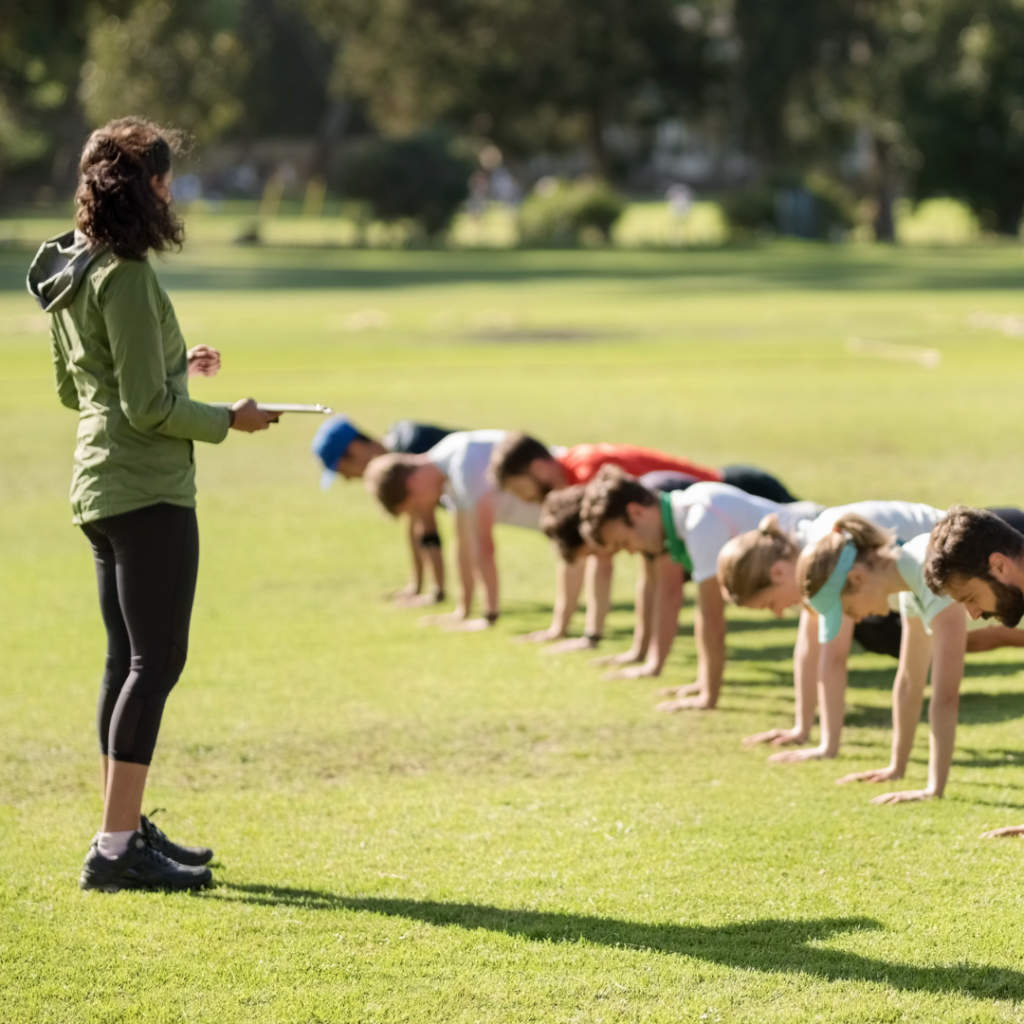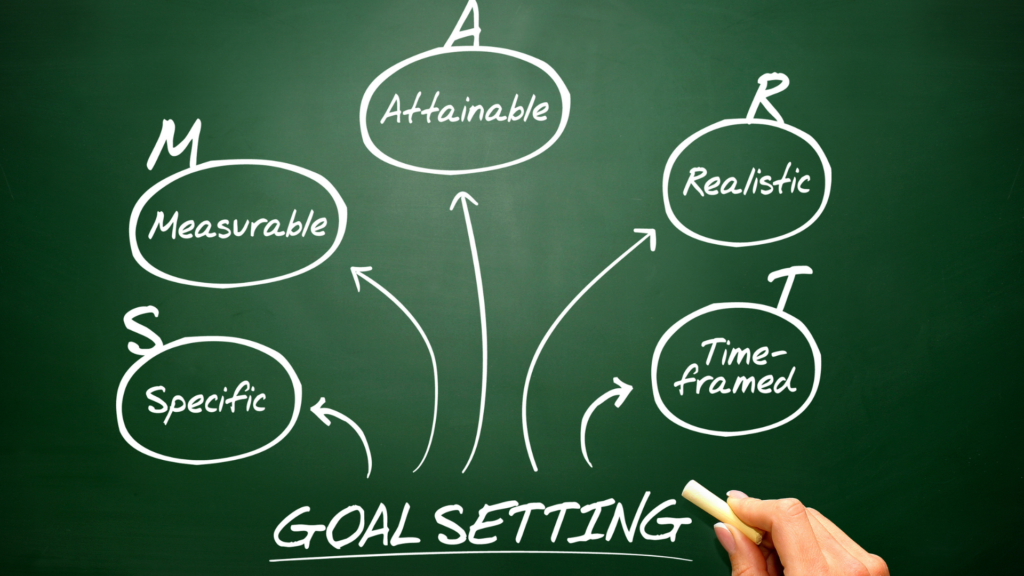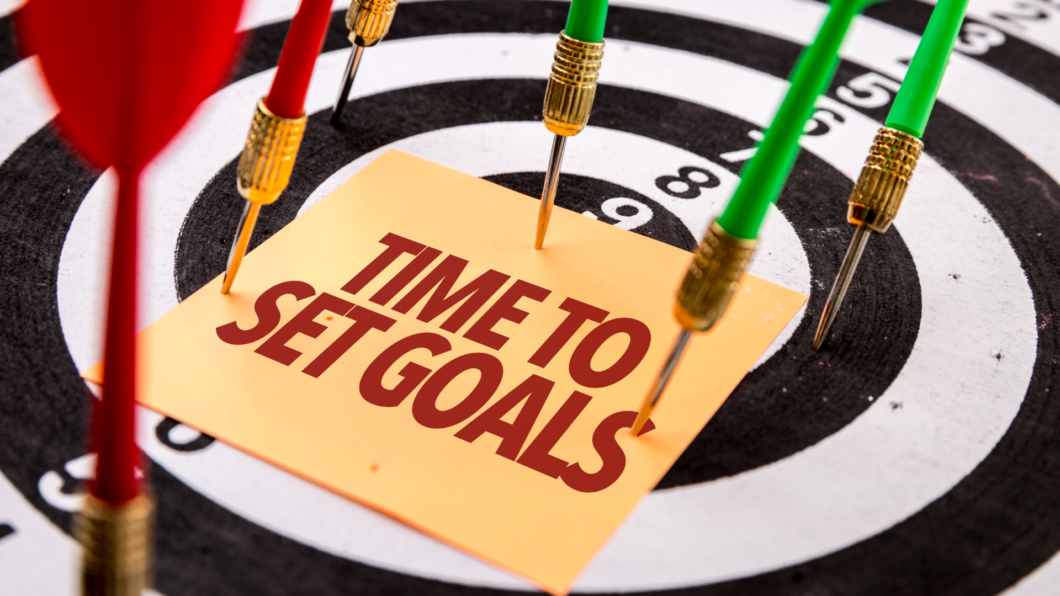Some athletes may lack motivation to compete in their desired sport or they may not feel like there is an achievable outcome from playing which therefore has a negative impact on their self-confidence. There are various ways in order for athletes to have that hunger and desire to achieve the impossible and one way in which they can do that is through goal setting. This method allows athletes and/or coaches to set short-, medium- and long-term goals that consist of things that an athlete can do in order to reach their goal which can be as small as learning a new skill as a short-term goal to them being an elite athlete as their long-term goal. Either way, this technique can help athletes to increase their motivation and self-confidence.
Effect on Performance

The good thing about goal setting is that any athlete can use it and set their goals based upon their ability and what they want to achieve. Self-confidence is vital in an athlete’s performance and sometimes creating a goal to achieve a new skill in football for example will improve self-confidence as they know that they can achieve something through clarity in their goals. When setting goals, difficult goals lead to better performance (Locke and Latham, 1985) as it will allow athletes to focus more on their desired outcome through harder work compared to set themselves an easy goal
One way in which athletes can set appropriate short-term goals is by focusing on process-oriented goals meaning that they set themselves smaller goals on how they can reach the long-term goal which is the ultimate outcome. For example, a tennis player might want to improve their accuracy on their backhand shot so in order for them to reach that target they may spend an extra hour after their training sessions to dedicate more time to perfecting that shot. By doing an extra hour after every session, when it comes to a big game or competition, the athlete will see improvement.
Furthermore, having the ability to use goal setting effectively can be useful because goals you set provide a way of evaluating your performance. Therefore, having a way of evaluating your performance can increase confidence because athletes can identify their progress and work towards specific areas of improvement.
Goal Setting in Team Sports

Goal setting isn’t just for individual athletes, it is just as effective in team environments. In all sports, communication is key and if the team has an overall goal to strive towards then the only way, they can reach that goal is through talking to each other and working as a team. One way in which a sports team could attain goals is through the SMART process. These goals could be set by the coach in which the goal is Specific, Measurable, Achievable, Realistic and Time-bound.
Having these goals set by the coach results in the team needing to act as a unit because the whole idea of there being a team goal is so that they can work off each other using communication and encouraging one another. Furthermore, it means that each player is working towards the same outcome which can benefit the team and especially the captain because they can support all their teammates in giving advice on what needs to be done to help them improve but it also influences on the goal they are trying to reach.
Process goals could also be used in a team environment which means that the team aim to achieve small goals that will then reward them with the overall goal, this could be done by setting targets for each game which will gradually add up to the long-term goal that they wish to achieve. A good example of when a team goal was needed with the presence of small process goals was during the England vs Scotland match in the Euros 2020 which ended 0-0. If England had set a goal to aim for such as providing a fast counter attack by using process goals to get there, such as using the correct tactics so that the forwards were in the correct areas from when Scotland’s set pieces were intercepted then it would have meant that England could turn defence into attack in a matter of seconds.
How coaches can use Goal Setting

As a coach, it can be difficult to watch your team struggle. Goal setting could be a way to resolve problems for individuals and the team as a whole. For many sports, it’s almost always possible to win but only when playing together where individuals are encouraging and supporting. Especially in football, the successful teams like Real Madrid, Barcelona and many more are only at the level they are because of how they work as a team
Sometimes it might not be the team that needs to be set the goal, it could be the coach. There are many struggles that come along with the job of being a coach which are completely normal but can also be manged using goal setting. For example, a coach’s team could have an important game coming up so the coach could use the application of SMART goals and set a short-term, medium and long-term goal, this being the important game. The short-term goal could be the coach aiming to ensure that that his team are familiar with his tactics. Furthermore, their medium-term goal could be getting the team to apply the coaches’ tactics into a game scenario so that by the time they get to the real match, the team and the coach are confident in winning.

When looking at goal setting on a large scale, it can be beneficial in increasing the team’s motivation when they are playing against a team that’s easier to defeat. Teams can often become complacent when they don’t have a challenge. For example, the French football team seemed complacent when playing against Switzerland. Even thought France was leading 3-1, they became complacent and felt like they did not have any challenge to keep them motivated and engaged while Switzerland had a huge challenge of soring 2 goals to win against the world champions. In this same example, if France had a process-oriented goal to improve their defence then they would have been motivated to achieve this even when they were leading.
All athletes will face hurdles in their career but it’s using the correct techniques to jump over them and in most cases goal setting can be used in any way that is going to allow yourself to face and overcome the challenges
References
- Locke, E. A., & Latham, G. P. (1985). The application of goal setting to sports. Journal of Sport and Exercise Psychology, 7(3), 205-222.
- https://www.sportsrec.com/benefits-goal-setting-sports-6462830.html
About the Author

Keiran Sharp is an enthusiastic football player and future sports psychologist. He will be pursuing sports psychology at university in 2022.
Growing up I had always been interested in sports, in particular football. I trained as a footballer for most of my life. I don’t see football as just a game, I see it as a distraction from everything around me. I have seen how sport can impact the world in various ways and I want to understand how it can potentially change lives. I am inspired to explore what athletes do ‘behind the scenes to reach new heights. As a future sports psychologist, I am keen to find the deeper meaning of different sports
